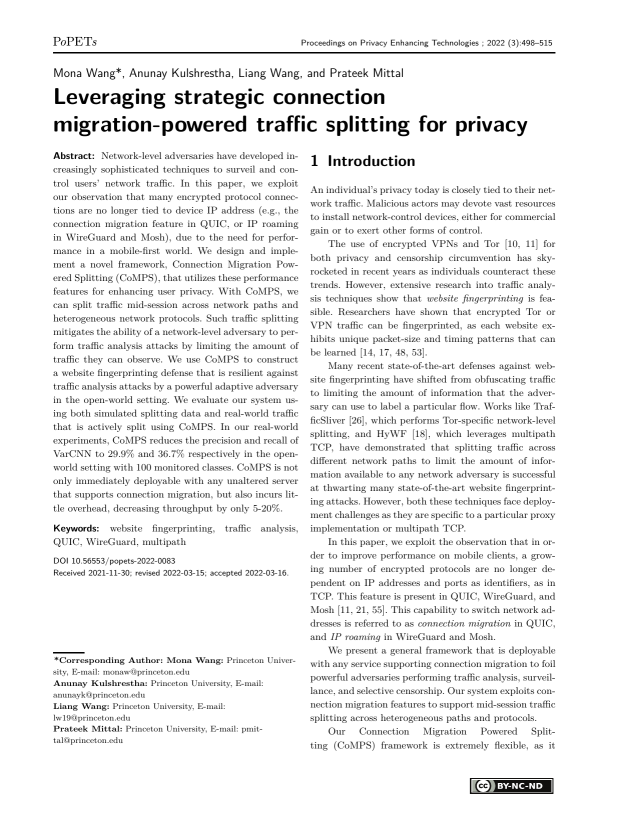Leveraging strategic connection migration-powered traffic splitting for privacy
Authors: Mona Wang (Princeton University), Anunay Kulshrestha (Princeton University), Liang Wang (Princeton University), Prateek Mittal (Princeton University)
Volume: 2022
Issue: 3
Pages: 498–515
DOI: https://doi.org/10.56553/popets-2022-0083
Abstract: Network-level adversaries have developed increasingly sophisticated techniques to surveil and control users’ network traffic. In this paper, we exploit our observation that many encrypted protocol connections are no longer tied to device IP address (e.g., the connection migration feature in QUIC, or IP roaming in WireGuard and Mosh), due to the need for performance in a mobile-first world. We design and implement a novel framework, Connection Migration Powered Splitting (CoMPS), that utilizes these performance features for enhancing user privacy. With CoMPS, we can split traffic mid-session across network paths and heterogeneous network protocols. Such traffic splitting mitigates the ability of a network-level adversary to perform traffic analysis attacks by limiting the amount of traffic they can observe. We use CoMPS to construct a website fingerprinting defense that is resilient against traffic analysis attacks by a powerful adaptive adversary in the open-world setting. We evaluate our system using both simulated splitting data and real-world traffic that is actively split using CoMPS. In our real-world experiments, CoMPS reduces the precision and recall of VarCNN to 29.9% and 36.7% respectively in the openworld setting with 100 monitored classes. CoMPS is not only immediately deployable with any unaltered server that supports connection migration, but also incurs little overhead, decreasing throughput by only 5-20%.
Keywords: website fingerprinting, traffic analysis, QUIC, WireGuard, multipath
Copyright in PoPETs articles are held by their authors. This article is published under a Creative Commons Attribution-NonCommercial-NoDerivs 3.0 license.


